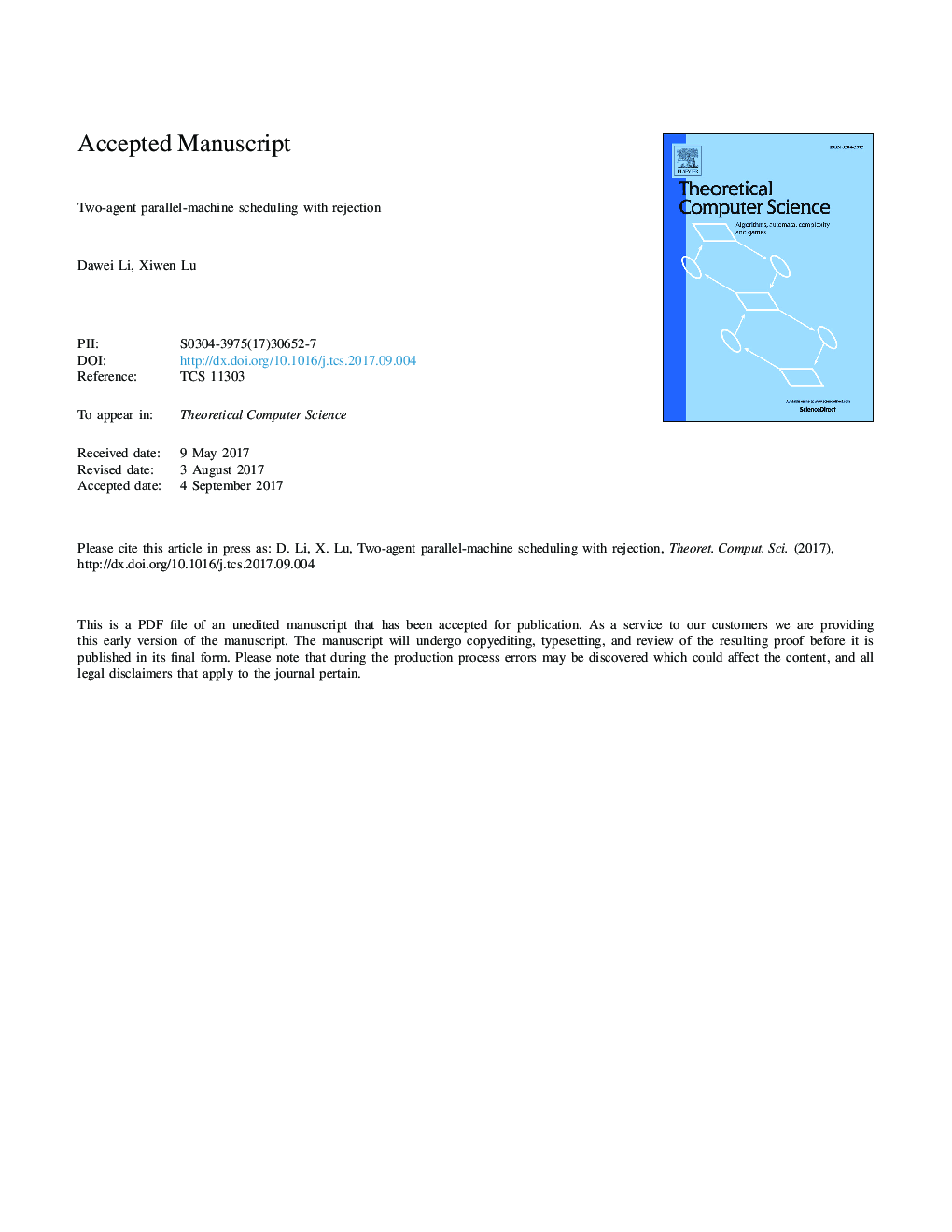| Article ID | Journal | Published Year | Pages | File Type |
|---|---|---|---|---|
| 6875788 | Theoretical Computer Science | 2017 | 25 Pages |
Abstract
We study the two-agent scheduling with rejection on two parallel machines. There are two competing agents A and B with job families JA and JB, respectively. A job in JA or JB is either rejected, in which case a rejection penalty will be incurred, or accepted and processed on one of the two parallel machines. The objective is to minimize the sum of the given objective function fA of the accepted A-jobs and the total rejection penalty of the rejected A-jobs subject to an upper bound on the sum of the given objective function fB of the accepted B-jobs and the total rejection penalty of the rejected B-jobs, where fA and fB are non-decreasing functions on the completion time of the accepted A-jobs and accepted B-jobs, respectively. We consider four scheduling problems associated with different combinations of the two agents' objective functions, fA=âCjA and fBâ{CmaxB,LmaxB,âCjB,âwjBUjB}. When (fA,fB)=(âCjA,CmaxB), we provide two pseudo-polynomial time algorithms and a fully polynomial-time approximation scheme (FPTAS). For the other problems, we give a pseudo-polynomial time algorithm, respectively.
Related Topics
Physical Sciences and Engineering
Computer Science
Computational Theory and Mathematics
Authors
Dawei Li, Xiwen Lu,
